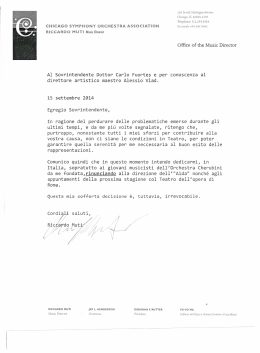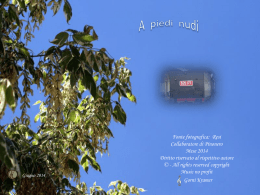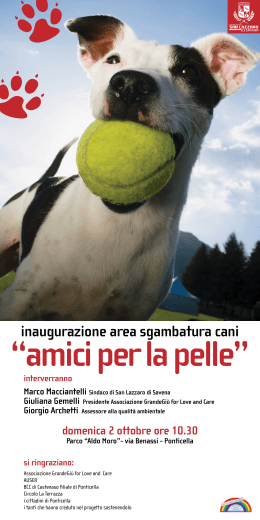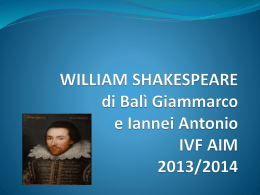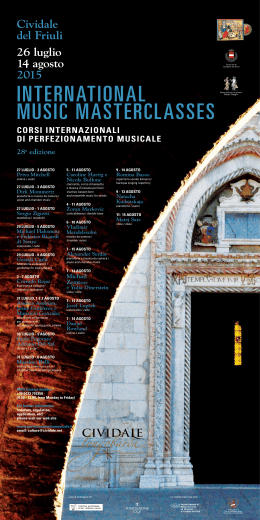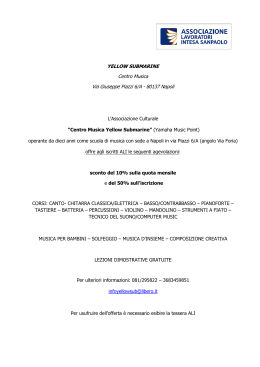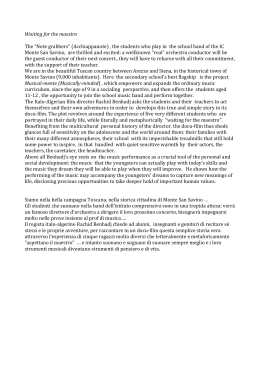Music and Texts
Rast Toccata (by Mehmet Ali Sanlıkol)
ACT I
Prologue
Scene One
Hüseyni Yelteme (anonymous instrumental piece in folk style)
Source: Mecmua-i saz ü söz (ca. 1650), collection of Ali Ufki (ca. 1610–75)
Güzel cariye, by Sanlıkol (text & music)
SÜMBÜL
Güzel cariye, selamden soñre
Vaziyet bildik pek esefile
Aceb değildir dar-ı düñyade
Hayr u şer gelüb insan başıne
Gız sevin artık, kederi bırak
Sultan-ı cihan yanında olmak
Ona kul olub saraya çıkmak
Nasib eylesiñ Allah herkese
Beautiful concubine, after greeting you
We have heard your story with regret.
It is nothing to wonder [at] that in this world
Good and evil things happen to us.
Girl, put sorrow behind [you] and be happy now.
To be next to the sultan of the world,
To be his slave and to live in his palace
I hope is granted to everyone by God.
SUZAN
Ben sevinemem, yok sevinemem
I cannot be happy, I cannot.
SÜMBÜL
Gız pek cahilsin, hele bir diñle
Misg amber tüter ol gonceligde
Haşa ki beñzer beharisdane
Pür altun kaplu ol serayler de
Gız sevin artık. . . .
Girl, you are very simple, listen for a moment:
Beautiful scents of musk and amber are in that garden,
Much like a paradise,
And the palaces are covered in pure gold.
Girl, just be happy. . . .
SUZAN
Ben sevinemem, yok sevinemem
SÜMBÜL
Neçiñ böyle deñ, gözümün nuru?
SUZAN
Nasıl söylerim efendiciğim?
SÜMBÜL
De güzelciğim, neyimiş derdiñ?
SUZAN
Ben sevinemem, ikicanliyim
I cannot be happy, I cannot.
Why do you say this, light of my eyes?
I cannot say my Lord.
Speak, my beauty, why do you suffer like this?
I cannot be happy, I am with child.
Note: Pieces arranged by Mehmet Ali Sanlıkol are indicated by an asterisk.
Il tempo fugge
From Rappresentazione di anima e di corpo (Portrayal of the soul and the body), Florence, 1600
Text by Agostino Manni (1548–1613); music by Emilio de’ Cavalieri (ca. 1550–1602)
SUZAN
Il tempo, il tempo fugge,
La vita si distrugge:
E già mi par sentire
L’ultima tromba e dire,
Uscite da la fossa
Ceneri sparse, et ossa,
Sorgete anime ancora,
Prendete i corpi hor’ hora:
Venite à dir’ il vero . . .
Sì che ciascun’ intenda,
Apra gli occhi e comprenda,
Che questa vita è un vento,
Che vola in un momento. . . .
Faccia dunque ognun prova,
Mentr’il tempo li giova,
Lasciar quant’è nel mondo,
Quantunqu’in se giocondo:
Et opri con la man’, opri co’l core,
Perche del ben’oprar frutto è l’honore.
Time, time runs away,
life destroys itself:
and already I seem to hear
the last trumpet, and the words,
“Come out of the grave,
scattered ashes and bones,
rise again, souls,
take your bodies again now;
come and tell the truth . . .
so that each one may understand,
open his eyes, and comprehend
that this life is a wind
that flies in a moment. . . .”
Make, then, every attempt
while time remains favorable
to leave what is in the world,
however pleasant it is in itself:
and work with hand, work with heart,
for the fruit of good work is honor.
Scene Two
Buselik Aşiran Gazel (vocal improvisation); text by Zârî (d. 1686)
SÜMBÜL
Tünd-i bad-ı saht-u gerdundan kalub bi-reng-i derd
Sümbül-ü gülden şemim-i müşg-i nab eksilmede
From destiny’s terrible typhoon, a colorless sorrow remains.
The beautiful scent of the hyacinth and the rose is doomed to fade.
Suz u tab-ı encümen çüñ şem-i mürde bi-fürug
Ateş-i kanuñ-ı dilden iltihab eksilmede
Brightness of the fire that burns the stars, because the candle of the dead has no light,
It is the law of the heart’s own fire, that it must cool down.
Or non doveva
Text from Orlando inamorato, by Matteo Maria Boiardo (1434–94), adapted by Tom Zajac
Music by Jacquet Berchem (ca. 1510–65)
SUZAN
Or non doveva almanco comportare
Ch’io il potessi vedere in viso un poco,
Che forse al quanto potea mitegare,
A lui mirando, lo amoroso foco?
Ben vedo che a ragion nol debbo amare;
Ma dove é amor, ragion non trova loco,
Per che eunuco e vecchio e nero il chiamo
Ma sia quell che si vole io cosi l’amo.
Now should he not at least
let me see his face a little,
so that, gazing at him,
the fire of love might be somewhat quelled?
Well I see that, in all reason, I should not love him,
but where there is love, reason finds no place,
for I call him a eunuch, and old and black,
but be that as it may, I love him that way.
Ch’io abbia dato
Text from Goffredo Raponi’s Italian translation of Shakespeare’s Othello (1998); music by Sanlıkol
SUZAN
Ch’io abbia dato al Moro l’amor mio
per vivere la vita insieme a lui,
possono proclamarlo al mondo intero
l’aperta mia rivolta
e la tempesta delle mie fortune.
That I did love the Moor to live with him,
My downright violence and storm of fortunes
May trumpet to the world.
[Original lines of Shakespeare]
Benden sana yar olmaz* (anonymous folk song from Artvin)
SÜMBÜL
Benden sana yar olmaz
Olsa vefakar olmaz
Kışa çevirme yazımı
Çalıb diñletme sazımı
Küstürüb sen al nazımı
Yaralıyam yaralı. . . .
I cannot be a lover to you
If love cannot be sustained.
Do not turn my summers into winters.
Do not make me play my lute and then listen
Offend me and keep up with my reluctance
I am wounded . . . .
Efendiciğim, sakın üzülme, by Sanlıkol (text and music)
SUZAN
Efendiciğim, sakın uzulme
Omrum hebaye virdım havaye
Ol karibligde dusman elinde
Sen oldun sifa benim yareme
My lord, do not be upset.
My life was wasted like the thin air
while in the distant lands of enemies.
But you have healed my wound.
Yar sevin artık, kederi bırak
Senin her daim yanında olmak
Sana kul olup hanene çıkmak
Nasib eylesin Allah herkese
Just be happy, leave sadness behind.
To be forever by your side,
To become your servant and be in your home,
I hope is granted to everyone by God.
SÜMBÜL
Yok güzelciğim, olmaz öyle şey
No, my beauty, no such thing can happen.
SUZAN
Olur sevdiğim, efendiciğim
Ben sana bakar, seni severim
Seninle yatar, seni operim
Sakın uzulme, ol bana yeter
Yes, my love, my lord,
I will take care of you, and love you.
I will lie with you, and kiss you.
Hush, don’t be sad, it is enough for me.
Yar sevin artık...
Just be happy, my love.
SÜMBÜL
Olur mu yarim, ey güzelciğim
Can it be, my love, my beauty?
SÜMBÜL and SUZAN
Olur sevdiğim, olur sevdiğim
Yes, my love, my love.
A wedding celebration in honor of Sümbül and Suzan
Muhayyer Köçekçe (suite for boy dancers, assembled by Sanlıkol)
Source: Mecmua-i saz ü söz
Pişrev-i Varsağı (instrumental prelude in folk style, anonymous)
SAADET
Türki beray-ı mahabbet (love song in folk style)
Text and possibly music by Ali Ufki; music edited by Sanlıkol
Şunda bir kaşları kare
Aldı göñlümü virmedi. . . .
Right there is a beauty with dark eyebrows.
[Who] took my heart and never gave it back. . . .
Türki beray-ı aşk (“Song for love”)
Text: Katibi (17th c.); anonymous music
Çünki mahabbetiñ yoğıdı baña
Yanıma gelmesen ne idi ezelden. . . .
Because you did not show me affection,
I wish you had never come near me. . . .
Varsağı (17th-century folk song, anonymous)
Yürü ey saba, haberim ilet benim afet-i ey dil-i canıma
O morning breeze, bring my news to the one who stuns the heart of my soul.
Scene Three
Zurna Taksim (improvisation)
Nicesin Venedik frengi (folk song)
Source: Mecmua-i saz ü söz; text by Tasbaz Ali (17th c.); anonymous music
CHORUS OF SOLDIERS
Nicesin Venedik frengi
İdüb Osmanlı’yla cengi
Kırdırdıñ kaç nice bin sengi
Serhoş sirkat küstahların. . . .
What kind of people are you, Venetians?
Making war with the Ottomans,
A thousand rocks are broken
By your drunken arrogant thieves. . . .
Hüseyni Peşrev* (instrumental prelude)
Source: Mecmua-i saz ü söz; music possibly by Osman Paşa (1526–85)
Nişabur Murabba* (song in court style)
Source: Mecmua-i saz ü söz; text by Frenk Mustafa (17th c.); anonymous music
MUSTAFA
Olur melül-ü garib elem çeker mi aşık canım
Beni görüñ ki menim hem garib-ü hem aşık canım
Düşürme sagarı elden sunarsa kaseyi aşık
Cihan bütün o da yansa elem çeker mi aşık
Sweetheart, can a poor soul bear sorrow and become sad?
Look at me, I am both sorrowful and in love
Do not put down your glass if the lover offers a bowl.
Even if the entire world burns, can a lover bear sorrow?
Datemi pur martiri
Anonymous text; music by Sanlıkol
SUZAN
Ora basta!
That’s enough!
MUSTAFA
Datemi pur martiri,
Burlate i miei sospiri,
Negatemi mercede;
Oltraggiate mia fede
Ch'in voi vedrete poi
Quel che mi fate voi.
Make me suffer,
mock my sighs,
deny me mercy;
abuse my faith,
for you will see for yourself
what you do to me.
Semai-i efrenci* (instrumental postlude)
Source: Mecmua-i saz ü söz; anonymous music
* * * INTERMISSION * * *
Rast Toccata, by Sanlıkol
ACT II
Scene One
Pişrev-i Rocer (“Prelude by Roger”)
Source: Mecmua-i saz ü söz; music by Rocer (17th c.)
Pişrev-i efrenci yani Pavane* (“European peşrev meaning pavane”) / Pavane de Spaigne
European version from Terpsichore, Musarum aoniarum quinta (1612), by Michael Praetorius
Anonymous music; text by Sanlıkol
Turkish version from Mecmua-i saz ü söz
CHORUS
Viva Ruggiero,
Il vittorioso!
Long live Roger,
The victorious!
La Gelosia (Jealousy)
Secular solo cantata, 1640s; text, Domenico Benigni (1596–1653); music, Luigi Rossi (ca. 1597–1653)
MUSTAFA
Gelosia! Che a poco a poco
Nel mio cor serpendo vai,
Non entrar dov'arde il foco:
Vero amor non gela mai.
Da me che brami?
Forse vuoi tu
Ch'io più non ami.
Furia dell'alma mia,
Non mi tormentar più!
Lasciami, Gelosia!
Jealousy! [You] who little by little
go winding into my heart like a serpent,
do not enter where the fire burns:
true love never freezes.
What do you want of me?
Perhaps you want me
not to love any more.
Fury of my soul,
torment me no longer!
Leave me, Jealousy!
Tempolu Gazel and Çiftetelli Keman Taksim* (vocal and instrumental improvisation over an ostinato)
Türki şikayet ez-felek (“Song that complains of fate”)
Source: Mecmua-i saz ü söz; text: Katibi; anonymous music
SAADET
Çarh-ı felek benim hatırım yıkdıñ
Seniñ dahi hatırcığıñ sına hey
Hicranın odına bağrımı yakdıñ
Bencileyin kara bağrıñ yana hey
O destiny, how you have offended me!
I hope you examine your feelings.
You burned my heart with the flame of sorrow.
If you ask me, your black bosom should burn.
Şu takarrüb iden üç güñde, by Sanlıkol (text and music)
SÜMBÜL
Şu takarrüb iden üç güñde ki tebşîr idiver
İki güñ miskin-i bîçâreye zindan-ı beşer
Ol Rocer öldü bizim çüñ de gebersiñ fenâ
Bana iflah o riyakar telef olmazsa gedâ
MUSTAFA:
Ey efendim bu iş olmuş ve de bitmiş biliniz
Koca Sümbül Ağa arz eylese ferman biliriz
In three days give me the good news,
As the next two days will feel like a prison
to this helpless one.
For us, Roger is already dead, but kill him brutally.
Until that smooth-tongued one is dead, I will feel
no relief.
My lord, be assured that this will be done.
The wish of the great Sümbül Ağa for us
is a command.
Scene Two
Hicaz Gazel and Recitative
Sümbül’s text, anonymous; music, a vocal improvisation
Suzan’s music by Cavalieri, adapted and texted by Sanlıkol
SÜMBÜL
Hatırımdan çıkmaz asla ahd-ü peymanıñ seniñ I can never forget your promise.
Bin yemin ettin a zalim yok mu insafıñ seniñ
O tyrant, after a thousand promises,
have you no mercy?
SUZAN
Bu sözlerden meramınız nedir?
Ben zevceniz, Allah şahidimdir
Sözüm, özüm doğru size karşı
Bahtı kara benim kaderimdir
What do you mean with these words?
I am your wife, God is my witness.
My words, my intentions are true before you.
But what is dark is my destiny.
SÜMBÜL
Göñlümü yıktı temelden tiri müjgânıñ seniñ
Aşıkı mahveylemek mi lûtfû ihsanıñ seniñ
My heart was devastated by the arrow of your glance.
Is destroying a lover your favor to him?
Assisa a’ pie d’un salice (Willow Song)
Text from the libretto of Rossini’s Otello (1816), by Francesco Maria Berio di Salsi (elaborated
from the core idea in Shakespeare); adapted by Sanlıkol; music, anonymous 17th c. (England)
SUZAN
Assisa a’ pie d’un salice,
Immersa nel dolore . . .
L’aura tra i rami flebile
Ne ripeteva il suon.
Seated at the foot of a willow,
immersed in pain . . .
the mournful breeze amid the branches
repeated the sound [of her sighs].
Dünya benim diyen beyler
Text by Kuloğlu (17th c.), from Mecmua-i saz ü söz; music by Sanlıkol
SÜMBÜL, SUZAN, MUSTAFA, and SAADET
Dünya benim diyen beyler
Mazul olur yatar birgün
İner gökteki melekler
Yerde sema tutar birgün
Those men who say “the world is mine”
Will one day be dismissed and lie down.
One day the angels in the sky will come down
And whirl in devotion on the earth.
Zikir (ostinato used in Sufi devotion) and Ney Taksim* (improvisation)
Türki beray-ı fena-i cihan (“Song for the wicked ways of the world”)
Source: Mecmua-i saz ü söz; text and possibly music by Ali Ufki
SAADET
Dad elinden şu fenanın
Be hey nazargahım tağlar
Sürerler demi gınanın
Garib içüñ kimler ağlar
I ask for justice from this terrible world,
O you mountains I see all around,
Some enjoy times of wealth,
But who cries for this poor soul?
Epilogue
* * *
Special thanks to Tom Zajac, for his invaluable assistance in researching and adapting much of the
early European repertoire of this production; to Dr. Cemal Kafadar, Vehbi Koç Professor of Turkish
Studies at Harvard, for his continual guidance in all aspects of this project, both historical and artistic;
to Aslı Çakım for assistance on the Dünya brochure; and to Claire Nivola for making the masks and
the storyteller’s kaftan.
About Dünya
DÜNYA ("world" in Turkish, Arabic, Persian, and Greek) is a musicians’ collective, a non-profit
educational organization founded in Boston in 2004. Its goal is to present a contemporary view of a
wide range of Turkish traditions, alone and in interaction with other world traditions, through
performance, recording, and other educational activities. Dünya seeks to work with a wide range of
cultural and religious organizations and musical groups, but relies on no particular political,
governmental or religious affiliation or support of any kind. Visit Dünya at www.dunyinc.org.
Scarica
